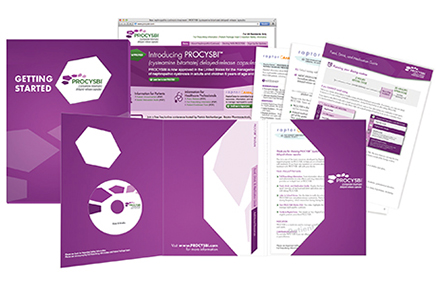Compass Healthcare Marketers president/CEO Peter Nalen has a succinct way of describing a fundamental mistake companies often make about marketing drugs to patients with rare diseases, a subject of increasing attention from Big Pharma companies in recent years. “You can’t drop into a community,” he says, “and say, ‘I’m Pfizer and I’m super-duper.’”
By definition, rare diseases give birth to small patient communities full of highly engaged people—often parents—who pass along information fast. Increasingly, these diseases are attracting the attention of bigger and bigger companies who are finding that traditional consumer approaches don’t get the job done.
Says Nalen, “The big guys used to show up at these advisory group meetings, sitting in the back in suits, arms crossed and watching people like guinea pigs in a cage. You’ve got to move up, roll up your sleeves, and ask, ‘How can we help?’”
In case you can’t tell, Nalen takes rare diseases and orphan drugs, his agency’s sole focus, seriously. The death of his brother years ago inspired him to get into the business, but talk to him for a few minutes and you can see the passion hasn’t waned. And it’s resulted in a lot of tough talk for the big players in the space.
“Most understand the need but they don’t understand the how,” he said. “It’s not promotional stuff. You have to suspend the Big Pharma desire for proven ROI on everything when you step into the community engagement space.”
It’s not that there aren’t returns; it’s just that they can be hard to quantify—and predict. And that can be a tough sell even for small companies.
“You’re engaging at two years out from launch,” he said. “That can be tough for companies founded by a scientist and privately funded. They’re thinking: I have to spend half a million bucks on what someone might call fluff before I launch the drug.”
One success story Nalen tells came about while working on a Raptor Pharmaceuticals drug not yet to market. After Compass spent a year engaging with the community, a company analyst announced that Raptor was planning to slap an exorbitant price on the drug. Raptor didn’t need to turn to Compass or a PR firm to quiet the outrage throughout the community.
“Members of the advocacy group said, ‘Wait a minute, Raptor has no position on pricing,’” Nalen said. “They defused it on behalf of our client.”
How’s that for fluff?
Based in Ewing, NJ, and with a service office in San Francisco, Compass is a 35-person agency, up from 30. Important recent hires include new creative director Sandi Bryan and new VP-strategic services and health literacy expert Brad Aufderheide.
In 2011, Compass grew 15%, but fell off in 2012 to 7-8% growth, a decline that Nalen blamed on product launches that didn’t materialize. 2012 wins included Vanda Pharmaceuticals’ Tasimelteon, an insomnia drug now being tested as a circadian regulator for the totally blind, and an Edimer Pharmaceuticals’ drug for sufferers of XLHED. Compass also picked up work from Pfizer, which may seem strange given Nalen’s tough talk for Big Pharma.
“It really depends on the approach,” he said. “Pfizer knows what it doesn’t know. Others use rare as an inexpensive way to get drugs into the market and then look for bigger indications.” Thanks to a 30-year-old law, companies that manufacture orphan drugs can get benefits from the federal government, including tax breaks.
Nalen fully expects there to be more competition in the space, but is confident in Compass’ patient-focused approach. He’s projecting 20% growth for 2013.
From the July 01, 2013 Issue of MM+M - Medical Marketing and Media








